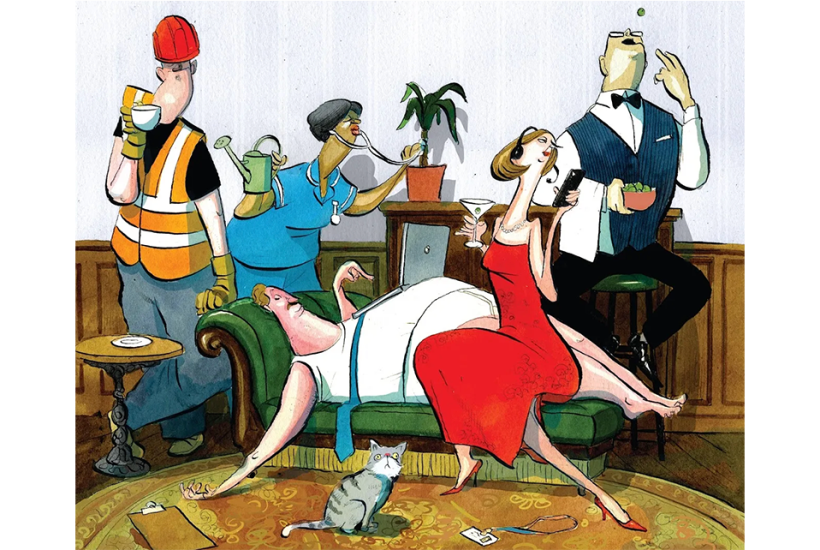For my newspaper I wrote last week about the rocketing numbers (now more than nine million) of our fellow citizens who are ‘economically inactive’ (aged 16-64, unemployed but not seeking work). Within that category, a fast-growing number (nearly three million) are claiming a range of disability or sickness-related benefits, usually a PIP (personal independence payment).
Already a subscriber? Log in
Subscribe for just $2 a week
Try a month of The Spectator Australia absolutely free and without commitment. Not only that but – if you choose to continue – you’ll pay just $2 a week for your first year.
- Unlimited access to spectator.com.au and app
- The weekly edition on the Spectator Australia app
- Spectator podcasts and newsletters
- Full access to spectator.co.uk
Or
Unlock this article
You might disagree with half of it, but you’ll enjoy reading all of it. Try your first month for free, then just $2 a week for the remainder of your first year.









Comments
Don't miss out
Join the conversation with other Spectator Australia readers. Subscribe to leave a comment.
SUBSCRIBEAlready a subscriber? Log in